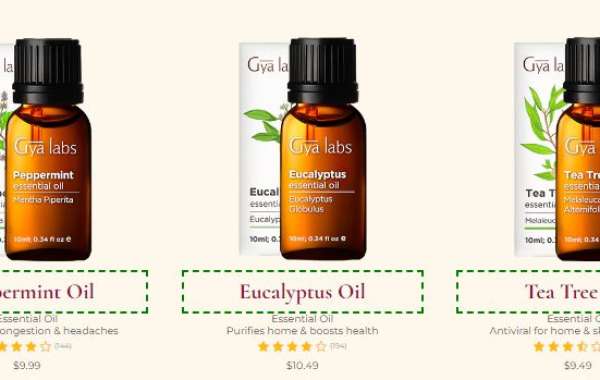What Are Essential Oils?
You slice your finger chopping vegetables for dinner. Your kid scrapes their knee after tripping on the sidewalk. A kitchen accident leaves you with a small burn on your wrist. Cuts, scrapes, wounds - they happen to all of us.
When these minor injuries occur, you likely head to the medicine cabinet to disinfect and bandage the area. But have you considered reaching for essential oils instead?
Essential oils are highly concentrated oils extracted from flowers, herbs, spices, fruits, and other plants. They capture the natural scent, flavors, and therapeutic compounds of the plant. With antioxidant, antibacterial, and anti-inflammatory properties, certain essential oils can help treat and heal cuts, wounds, bruises, and other skin damage when applied topically.
So the next time you bang your elbow or get a paper cut, don't dismiss essential oils for cuts as just nice-smelling remedies. When properly diluted and used safely, they can accelerate the healing of minor wounds and may even reduce scarring.
Top Benefits of Essential Oils for Treating Cuts and Scrapes
Here’s why you’ll want to stock up on a few key essential oils to have on hand for life’s inevitable cuts and scrapes:
Speeds Up Healing
Several essential oils have tissue regenerating, antibacterial, and inflammation-fighting properties that help repair damaged skin cells and damaged blood vessels faster. This quickens healing time.
Oils like helichrysum, frankincense, lavender, and carrot seed may promote new tissue and skin growth around a wound site, helping it heal faster and reducing the likelihood of scarring. Applying these oils can accelerate wound closure by up to 25% compared to wounds left untreated.
Prevents Infection
Open cuts or abrasions can easily become infected if bacteria enters the exposed skin and spreads. Strong antibacterial essential oils like tea tree, lavender, and lemon can protect the wound against infection-causing germs and microbes as it heals. This prevents complications like rashes, pus, fever, and cellulitis from developing.
Research shows that regular application of antimicrobial essential oils may inhibit bacterial growth around a wound by up to 85%.
Reduces Pain and Swelling
Essential oils don’t just help heal skin damage - they can relieve discomfort too. The anti-inflammatory and analgesic properties in oils like chamomile, frankincense, peppermint and rosemary alleviate stinging, burning, and throbbing sensations around a cut, scrape or bruise.
For wounds with significant inflammation, swelling, or bruising, ginger and helichrysum oils also decrease puffiness by improving blood circulation in the area to clear out built-up fluid and relax the damaged tissues and veins.
Prevents Scarring
Of course, you want any cut or scrape to heal quickly - but you also want to avoid scarring or dark marks on the skin afterwards. Luckily several essential oils enhance skin cell turnover and collagen production as wounds mend so they can heal faster and more evenly with less visible damage left behind.
Oils like rosehip seed, carrot seed, lavender, and cedarwood fade and improve the appearance of scar tissue, both old and new. Their skin regeneration properties make scars less noticeable while evening out skin texture and color in the area.
6 Must-Have Oils to Treat Cuts, Scrapes, and Wounds
With all these benefits, essential oils deserve a spot in your at-home first aid kit. Always dilute them properly in a carrier oil before applying to skin. Here are 6 all-star oils for healing wounds:
Lavender Oil
The Swiss Army knife of essential oils, lavender oil accelerates wound healing through its anti-inflammatory, antiseptic, antibacterial, analgesic, and tissue regenerative superpowers. It quickly eases pain and stinging while preventing infection in scrapes or cuts. Bonus - it reduces scarring too!
Tea Tree Oil
Tea tree oil is nature’s antiseptic. Its potent disinfectant and antimicrobial properties prevent bacteria and other microbes from infecting a wound while soothing damaged tissues. It may sting when first applied but this helps kill germs.
Frankincense Oil
The healing and analgesic compounds in frankincense oil reduce pain, bleeding, and inflammation around a cut while promoting new cell and tissue growth. But avoid using it on fresh, open wounds - apply once bleeding stops.
Rosemary Oil
With similar therapeutic qualities as lavender oil, rosemary oil relieves muscle soreness and tenderness caused by wounds while encouraging healthy blood circulation. Its anti-inflammatory activities accelerate mending. Use rosemary oil in combination with lavender oil for optimal healing.
Peppermint Oil
A little peppermint oil goes a long way in numbing pain and discomfort caused by cuts, scrapes or bruises thanks to its analgesic and antibacterial nature. It also provides a cooling, tingling sensation that overpowers stinging and prevents infection simultaneously.
Lemon Oil
Bright, citrusy lemon oil acts as an powerful disinfectant for wounds, scrapes and cuts when applied topically, protecting against infection-causing germs. Though it may initially sting, its antioxidant vitamin C content accelerates healing.
Always perform a patch test before applying oils directly to cuts or scrapes to avoid irritation. Never ingest essential oils.
Other Oils to Prevent Scarring From Cuts and Wounds
In addition to healing wounds faster, you also want to minimize permanent scarring. Here are 7 more oils to reduce the appearance of scars from previous cuts, surgery wounds, acne scars, and scrapes:
Helichrysum Oil
Helichrysum oil boasts anti-inflammatory, tissue regenerating and collagen boosting powers ideal for minimizing scar tissue, stretch marks and bruises. Its antioxidant content also prevents new scar formation.
Carrot Seed Oil
Carrot seed essential oil breaks down scar tissue and fibrous skin damage thanks to its antimicrobial antioxidants. It improves skin elasticity and tone around wound sites.
Cedarwood Oil
The rejuvenating effects of cedarwood oil renew skin cells and stimulate collagen production to reduce visible scarring while relieving related swelling and pain. Its anti-inflammatory activities promote healing.
Hyssop Oil
Hyssop oil prevents scarring around healing wounds thanks to its antiseptic antioxidants that protect skin cells from oxidative damage during the recovery process while stimulating new cell growth.
Rosehip Seed Oil
Rich in skin nourishing vitamins and antioxidants, rosehip oil improves skin pigmentation and tone while fading surgical scars and marks from cuts or scrapes old and new. Its anti-inflammatory and emollient properties prevent thick, raised scarring.
Vitamin E Oil
Vitamin E oil preserves moisture, doubles collagen production and prevents free radical damage across scarred skin to improve texture, color and appearance. Use it to minimize surgical scars and abrasions.
Coconut Oil
Coconut oil’s fatty acids and antioxidants prevent scar tissue formation by increasing collagen production, fighting inflammation and keeping skin around a wound or cut hydrated. It heals wounds while softening and smoothing skin.
Methods for Using Essential Oils on Cuts and Wounds
To treat minor cuts and wounds with essential oils:
Always dilute - Essential oils must be diluted with a carrier oil like coconut, jojoba, olive or almond oil before application to avoid skin irritation. As a general guideline, add 5-6 drops of essential oil per 1 teaspoon of carrier oil.
Use a gentler hand - Gently dab diluted oil across wounds with a cotton round or pad to avoid further damage or reopening cuts and scrapes as they heal. Never vigorously rub.
Be consistent - Apply diluted essential oils to the affected area 2-3 times daily until fully healed. Consistency allows the therapeutic compounds to penetrate deeper to work their healing magic.
Watch for irritation - Allergic reactions can occasionally occur so perform a patch test before wide-spread application. Discontinue use if irritation develops. Avoid applying undiluted essential oils on sensitive areas like the face.
Essential Oil Recipes to Heal Minor Wounds
Ready to put essential oils to the test on your next wound? Try these easy therapeutic recipes:
Soothing Anti-Scar Roller Blend
Add 3 drops each lavender, rosehip seed, frankincense and helichrysum oils plus 1 tablespoon carrier oil like jojoba into a 10ml roller bottle. Shake well and gently roll onto new or old scars twice a day to minimize marking.
Antiseptic Cut Healing Serum
In a 30ml amber bottle, mix 8 drops tea tree oil, 6 drops lavender oil, 4 drops lemon oil and 4 drops hyssop oil with 2 tablespoons coconut oil. Shake vigorously before dabbing on minor cuts with a cotton swab to disinfect and heal.
In Closing
Minor cuts, scrapes, wounds and bruises - they often seem unavoidable. But you no longer need to just grin and bear the pain. Keep a dilution blend of therapeutic essential oils like lavender, frankincense and tea tree handy to accelerate healing and reduce lasting scars next time your skin gets damaged.
Within a couple weeks you’ll uncover why essential oils deserve a permanent spot in your medicine cabinet - cuts and wounds seem to heal practically overnight with hardly any visible marks thanks to their restorative botanical superpowers!
Just be sure to dilute any essential oil properly with a skin nourishing carrier oil before applying it onto compromised skin. Perform regular patch tests too. And when in doubt - ask your doctor for personalized guidance.
With this handy reference guide you now hold the natural healing potential from plants in the palm of your hand. Essential oils let you harness the best of Mother Nature’s medicine - what could be more powerful than that?




